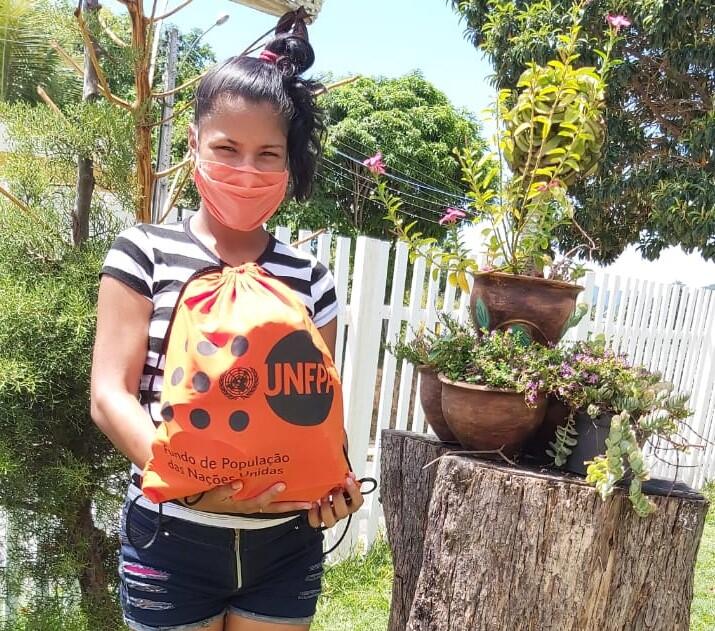Horihanny Del Valle is a young Venezuelan woman, 16 years old, who left her country about a year ago and lives now in Pacaraima, a border town between Brazil and Venezuela. She is pregnant and only heard about the COVID-19 pandemic through some friends. “I saw people talking about and it scared me”, she recalls. Last week, she and other women received more information from UNFPA Brazil on how to prevent the disease. The UNFPA Brazil also delivered Dignity Kits, containing essential items of personal hygiene at this moment, such as hand sanitizer, soap, and intimate pads.
Horihanny left Venezuela with her whole family because of the lack of conditions to provide for themselves. They live together, now, in a small rented house. There are a total of 15 people sharing a roof. The young woman said she didn’t have, until then, access to information and prevention supplies.
The United Nations Population Fund in Brazil is delivering a thousand Dignity Kits to migrants and refugees in Roraima, through the program of humanitarian assistance. Young and pregnant women, like Horihanny, are among the priorities of the UN agency. “At this moment, with the pandemic, many essential services to pregnant women may suffer disruptions. That’s why it’s so important that they have access to accurate information on supplies to prevent the COVID-19. These people, who are already in a situation of vulnerability, may be exposed to increased risk”, explained the representative of UNFPA Brazil, Astrid Bant.
Just like Horihanny, Nayelis Totesaut, a 23-year-old, also left Venezuela, nine months ago, and received a Dignity Kit from UNFPA. “The situation in Venezuela was critical, nobody could buy food, we had to leave the country to avoid starvation. Here, at least, we have the opportunity to work”, she says. A mother of two children and expecting the third, she lives with the kids in an improvised plastic tent. “Here we wash our hands with soap and that’s how we prevent anything. This kit will be very useful”.


